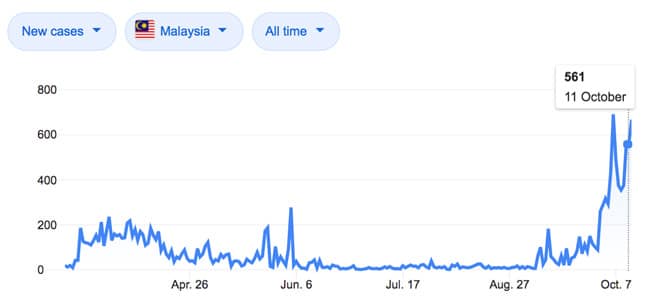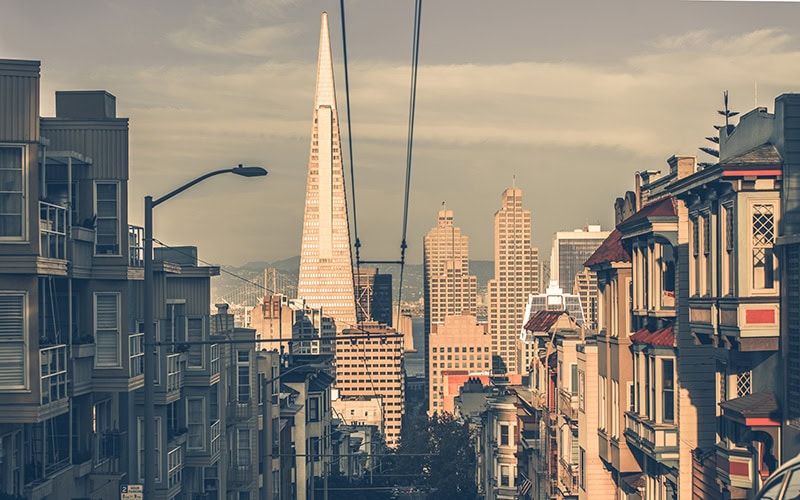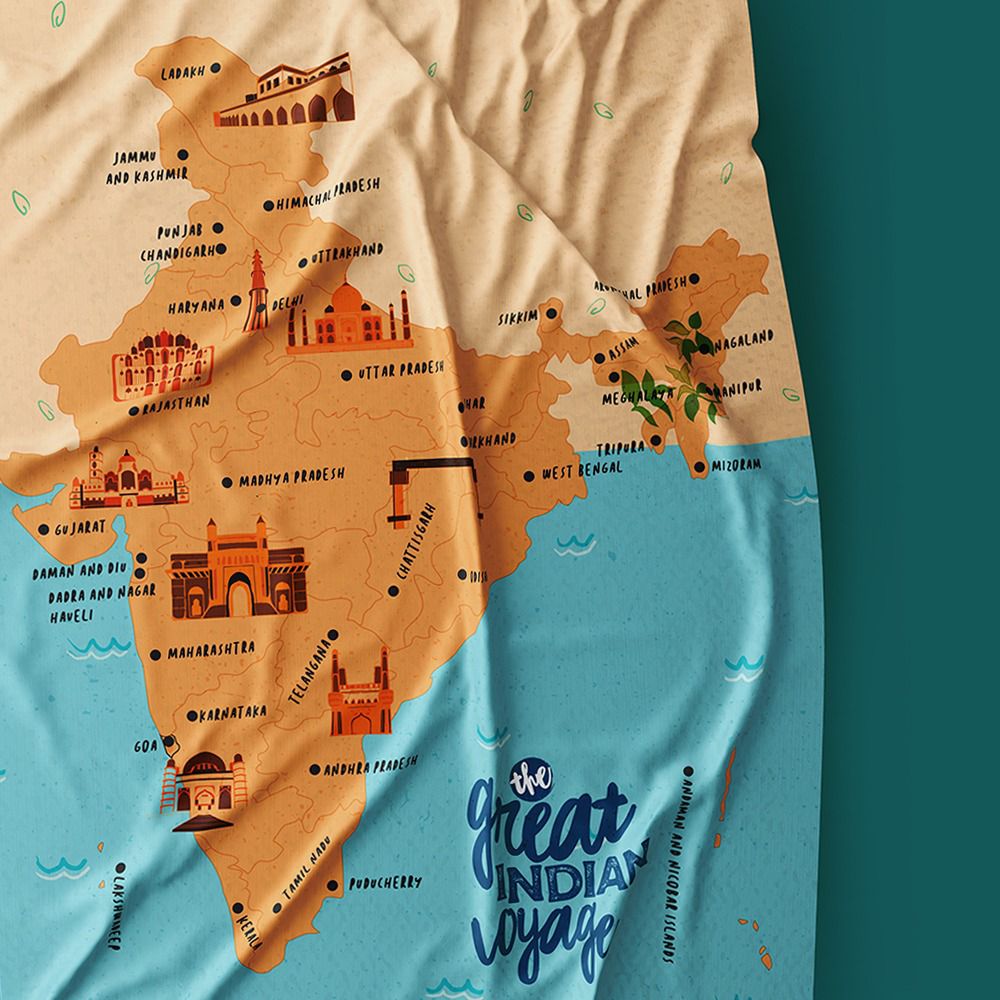
Malaysia orders universities online and restricts foreign student entry
October 16, 2020
New Students at U.S. Colleges Drop, Worsening Campus Crisis
October 16, 2020Four weeks before the election, the Trump administration has announced stricter rules for the H-1B visa program, which U.S. companies have long valued.
WASHINGTON — The Trump administration announced significant changes on Tuesday to the H-1B visa program for high-skilled workers, substantially raising the wages that U.S. companies must pay foreign hires and narrowing eligibility criteria for applicants.
Top administration officials framed the changes as a way to protect American jobs during the coronavirus pandemic, even though the Trump administration first committed to overhauling the program in 2017 as part of its efforts to reduce the number of foreign citizens employed in the United States.
“With millions of Americans looking for work, and as the economy continues its recovery, immediate action is needed to guard against the risk lower-cost foreign labor can pose to the well-being of U.S. workers,” Patrick Pizzella, the deputy secretary of labor, told reporters on Tuesday.
The rules will directly affect foreign workers and employers, especially tech companies that have long supported the H-1B program and pushed hard for its expansion.
Kenneth T. Cuccinelli, the acting deputy secretary of homeland security, said he expected the changes to cut by one-third the number of petitions filed annually for the coveted visas.
The changes will be published this week as interim final rules, meaning that the agency believes it has “good cause” to claim exemption from the normal requirement to obtain feedback from the public before completing them.
- Thanks for reading The Times.
Immigration lawyers and experts predicted that the changes would be swiftly challenged in court because they bypassed the normal regulatory process.
Keep up with Election 2020
All live election updatesLatest updates on today’s polls
“The public hasn’t even seen these regulations yet and won’t have the usual opportunity to provide comments, as required by Congress,” said Doug Rand, a founder of Boundless Immigration, a technology company in Seattle that helps immigrants obtain green cards and citizenship. “Given the inevitability of court challenges, it seems like slim odds that these policies are built to last.”
The government issues 85,000 H-1B visas each year, often using a lottery to award them because the number of workers sought by companies almost always surpasses the number of available visas. Many workers are eventually sponsored by their employers for green cards to remain permanently in the United States.
Editors’ Picks
The Tenants Who Evicted Their LandlordThe Three-Child American Family, Under SiegeMoving On Up to Her First Manhattan Purchase. What Could She Find for Under $800,000?
Some critics suggested that the changes, which came less than a month before the election, were politically motivated.
“Why this, why now, and why is it an interim final rule?” said Theresa Cardinal Brown, the director of immigration and cross-border policy at the Bipartisan Policy Center. “There’s no estimate of the amount of jobs this would actually free up for U.S. workers. It’s a bank shot at best.”
The Labor Department rule, which takes effect upon publication, would increase wages across the board for foreign workers, based on surveys of salaries in each profession. Companies would have to pay entry-level workers in the program in the 45th percentile of their profession’s salary rather than the 17th percentile. Wages for higher-skilled workers would rise to the 95th percentile from the 67th percentile.
“It will also likely result in higher personnel costs for some employers,” according to the Labor Department rule. “The purpose of protecting U.S. workers outweighs such interests and justifies such increased costs,” the agency added.Election 2020 ›
Latest Updates
Updated Oct. 16, 2020, 12:45 p.m. ET4 hours ago4 hours ago
- How the battle over Judge Amy Coney Barrett’s confirmation could reshape the Senate.
- In North Carolina, as in other states, early in-person voting started strong.
- Biden and Trump are neck-and-neck in early Nielsen ratings (which are subject to change).
But Stephen Yale-Loehr, a professor of immigration law at Cornell Law School, said the rule would have the opposite effect.Sign up to receive an email when we publish a new story about the 2020 election.Sign Up
“By increasing the required wages, the new rules will harm all employers trying to hire foreign workers, but especially start-up companies and smaller firms who may not be able to meet the increased wage requirements,” he said.
The Department of Homeland Security’s rule, which takes effect in 60 days, would also tighten the eligibility for visa applicants. The rule would require the foreign workers to have a degree in the “specialty occupation” they apply for, rather than any college degree. Some would also need to show how their studies provided “a body of highly specialized knowledge” for a potential job in the United States.
The largest share of H-1B visa holders are employed by the tech sector, where they work as computer engineers and software developers. The visas are also issued to architects, accountants and physicians, among other professionals.
The rule will almost certainly have an adverse effect on rural hospitals and other health care providers that depend on a steady pipeline of physicians from abroad because they cannot attract enough American doctors, who generally prefer to practice in urban areas.
For example, instead of offering a minimum starting salary of $120,000 to $130,000, a clinic in northeastern Pennsylvania, which is considered an underserved area, would have to pay a foreign physician around $195,000 or $200,000.
“Entry-level doctors in rural areas will have to be offered experienced-level wages, which may be more than their supervisor is being paid,” said William A. Stock, an employment immigration lawyer in Philadelphia. “This will further restrict the supply of doctors willing to move to parts of rural America. It will put providers in a jam that they can’t afford to hire foreign-born doctors.”
The H-1B rule comes on the heels of a proclamation signed by President Trump in June that suspended an array of worker visas until at least Dec. 31. Groups representing thousands of businesses challenged that proclamation, which affected H-1Bs, H-2B seasonal work visas, L-1 visas for executives being transferred by companies and cultural-exchange J-1 visas, including au pairs.
The groups won a reprieve last week, when a federal judge ruled that Mr. Trump had overstepped his authority in banning the visas.
“There must be some measure of constraint on presidential authority in the domestic sphere in order not to render the executive an entirely monarchical power,” the judge said.
His order was at odds with an earlier decision by a federal judge in Washington, which ensured that an appeals court would make the ultimate determination.
But it immediately set aside the ban for companies that employed large numbers of foreign workers.





12 Comments
The growth of the information technology, research and development, and science sectors of the economy has forced American firms to scour the world for talent. To bring workers they need into the United States, American companies sponsor their H-1B work visas. The rapid pace of technological and scientific development is best fostered by an open immigration regime. Unfortunately, America is far from that today. Highly skilled foreign workers are typically well educated, English speaking, and young. They receive high levels of compensation, do not consume social programs, and do not commit crimes more than the general population. Moreover, there is little direct competition between foreign highly skilled workers and similarly skilled Americans. Foreign workers complement American workers and push them into different higher paying occupations.
This informative article has piqued my interest. So many things are mentioned here that I had never considered before. You’ve shown me that there are multiple ways to think about these issues. I’m not sure how I ended up here, but I thought this publication was fantastic. I appreciate how much thought you put into it. It’s obvious. Thank you once more.
This article provides a great overview of the impact of the Trump administration’s decision to tighten visa access for high-skilled foreign workers. The move to restrict access to H-1B visas could have serious repercussions not just for the tech industry, but for the U.S. economy as a whole. High-skilled workers from abroad have long been an essential part of innovation and growth in sectors like technology, healthcare, and engineering.
By reducing the number of available visas, it seems that the policy could unintentionally hinder the very talent that has been key to American success. The tech industry, in particular, has relied heavily on foreign workers to fill critical roles that local talent often cannot fill due to specific skill sets or shortages in certain fields. These changes may also lead to a talent drain, as other countries step up their efforts to attract skilled workers who may now feel less welcome in the U.S.
What stands out to me is the long-term impact on the country’s competitive edge. Innovation thrives when diverse ideas come together, and this policy could undermine that. Hopefully, future administrations will take a more balanced approach that continues to welcome talented workers while addressing concerns about labor markets and wages.
Your article helped me a lot, is there any more related content? Thanks!
Can you be more specific about the content of your article? After reading it, I still have some doubts. Hope you can help me.
Your point of view caught my eye and was very interesting. Thanks. I have a question for you. https://www.binance.info/ur/join?ref=JHQQKNKN
Thank you for your sharing. I am worried that I lack creative ideas. It is your article that makes me full of hope. Thank you. But, I have a question, can you help me?
Thanks for sharing. I read many of your blog posts, cool, your blog is very good.
Thanks for sharing. I read many of your blog posts, cool, your blog is very good.
455459 760784Some genuinely prime posts on this site , bookmarked . 126222
741692 472057Some actually marvellous work on behalf with the owner of this internet internet site , perfectly fantastic content material . 327738
192965 873353hi was just seeing should you minded a comment. i like your site and the thme you picked is awesome. I is going to be back. 913746